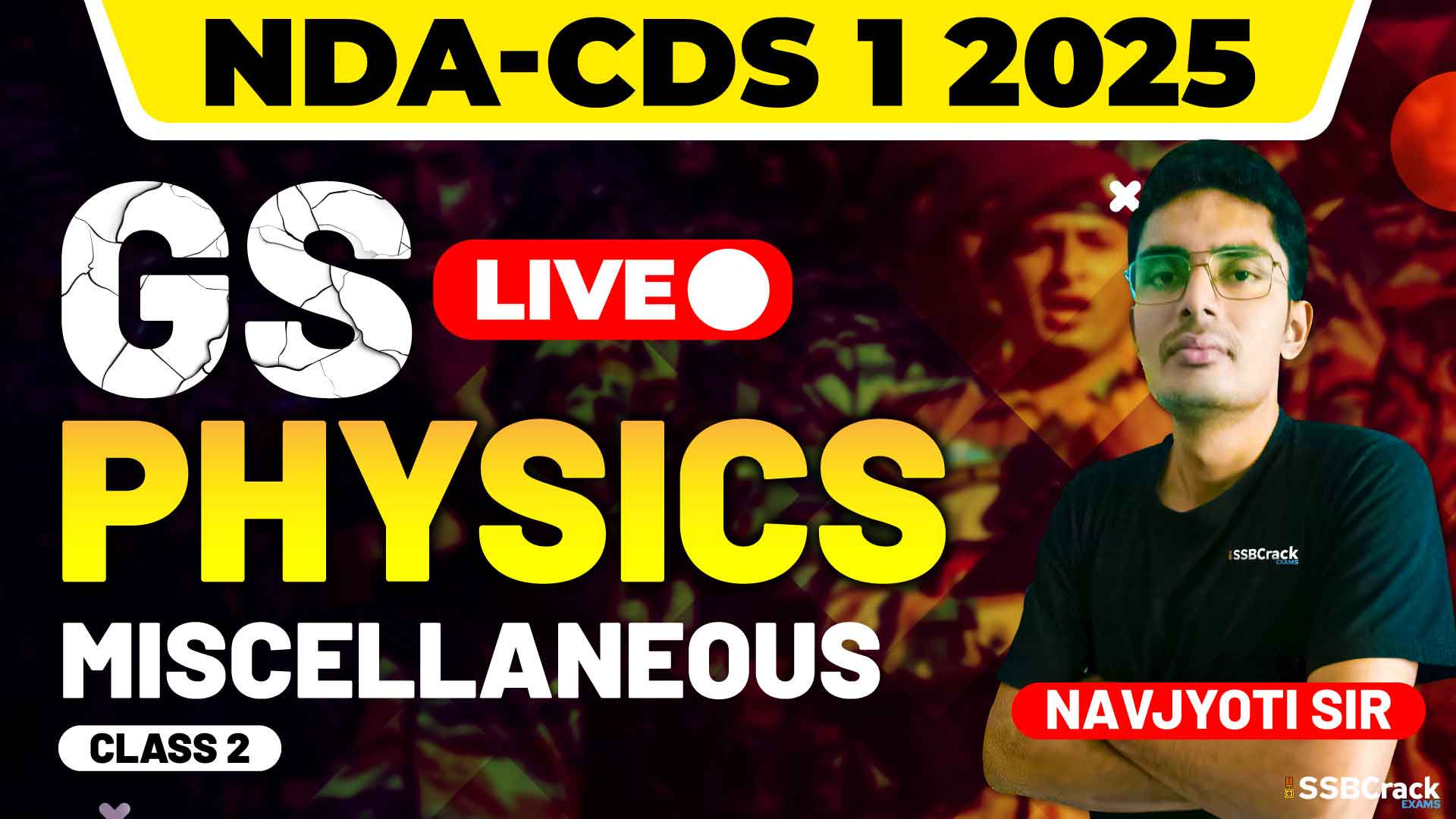The Physics section of exams like the National Defence Academy and Naval Academy (NDA-NA) and Combined Defence Services (CDS) includes various topics that require a strong conceptual grasp. Among these, the concepts of Nucleus and Radioactivity hold significant weight due to their theoretical and practical importance. A recent class was conducted to address these topics, focusing on subtopics like the Nucleus, Mass-Energy Equivalence, Binding Energy, Nuclear Fission and Fusion, and Radioactivity. The session provided students with a foundational understanding of these concepts, aiding their preparation for Paper II (GAT) of NDA-NA and the GK Paper of the CDS Exam.
Class Highlights
1. Overview of the Nucleus
The class began with an introduction to the nucleus, the tiny yet powerful center of the atom. Key aspects covered included:
- Structure of the Nucleus: Students learned about protons, neutrons, and their role in determining the properties of an atom.
- Mass-Energy Equivalence: This principle highlights the relationship between mass and energy, explaining how nuclear reactions involve tremendous energy changes.
2. Binding Energy
- The concept of binding energy was explained as the energy required to hold the nucleus together.
- Its significance in determining nuclear stability was discussed, with examples from isotopes and elements.
3. Nuclear Fission and Fusion
- Nuclear Fission: The splitting of a heavy nucleus into smaller nuclei was explained, with examples such as its application in nuclear power plants.
- Nuclear Fusion: The merging of light nuclei to form heavier nuclei was discussed, emphasizing its role in energy generation in stars like the Sun.
4. Radioactivity
- The session provided an overview of radioactivity as a natural and spontaneous process involving the emission of radiation.
- Types of radioactive decay—alpha, beta, and gamma decay—were introduced, along with their properties and effects.
Strategies to Prepare for the Topic
The topics of Nucleus and Radioactivity require not only theoretical understanding but also the ability to apply concepts in various contexts. Below are strategies to effectively prepare these topics for the NDA-NA and CDS exams:
1. Master the Basics
- Focus on understanding the structure and role of the nucleus.
- Familiarize yourself with the fundamental principles of mass-energy equivalence and binding energy.
2. Focus on Practical Applications
- Study the real-world applications of nuclear fission (e.g., power generation) and fusion (e.g., energy production in stars).
- Understand the implications of radioactivity in fields like medicine, archaeology (carbon dating), and energy.
3. Use Simple Diagrams
- Diagrams can help in visualizing processes like nuclear fission, fusion, and radioactive decay.
- Sketching out concepts will make them easier to remember during the exam.
4. Practice Application-Based Questions
- Solve MCQs based on scenarios involving nuclear reactions and radioactive processes.
- Familiarize yourself with questions that require reasoning, such as comparing the stability of isotopes.
5. Revise Key Points
- Prepare concise notes for each subtopic, summarizing the key concepts and their applications.
- Highlight important terms, such as binding energy, isotopes, and half-life.
6. Solve Previous Years’ Papers
- Practice questions from past NDA-NA and CDS exams to identify frequently tested concepts.
- Understand the pattern and difficulty level of questions related to the nucleus and radioactivity.
7. Attempt Mock Tests
- Regular mock tests can help you manage time effectively and identify areas that need improvement.
- Analyze your performance to strengthen weaker sections.
8. Stay Updated
- Occasionally, questions may involve contemporary applications or discoveries in nuclear science. Stay informed about basic advancements in this field.
Key Takeaways from the Class
The class on Nucleus and Radioactivity provided students with:
- A clear understanding of the structure of the nucleus and the energy dynamics within it.
- Insights into nuclear processes like fission and fusion, highlighting their applications.
- Knowledge of radioactivity and its significance in science and technology.
The emphasis on practical examples and application-based learning made the session both engaging and informative. Students left the class better equipped to tackle questions related to these topics in competitive exams.
Conclusion
The topics of Nucleus and Radioactivity are crucial components of the Physics syllabus for NDA-NA and CDS exams. They not only test theoretical knowledge but also require an understanding of practical applications and real-world implications. The recent class effectively bridged the gap between theory and practice, ensuring students gained a well-rounded understanding of the subject.
By following a structured preparation strategy—focusing on core concepts, revising regularly, and practicing diligently—students can approach this topic with confidence. Remember, success lies in consistent effort and a clear grasp of the fundamentals.
All the best for your exam preparation!







